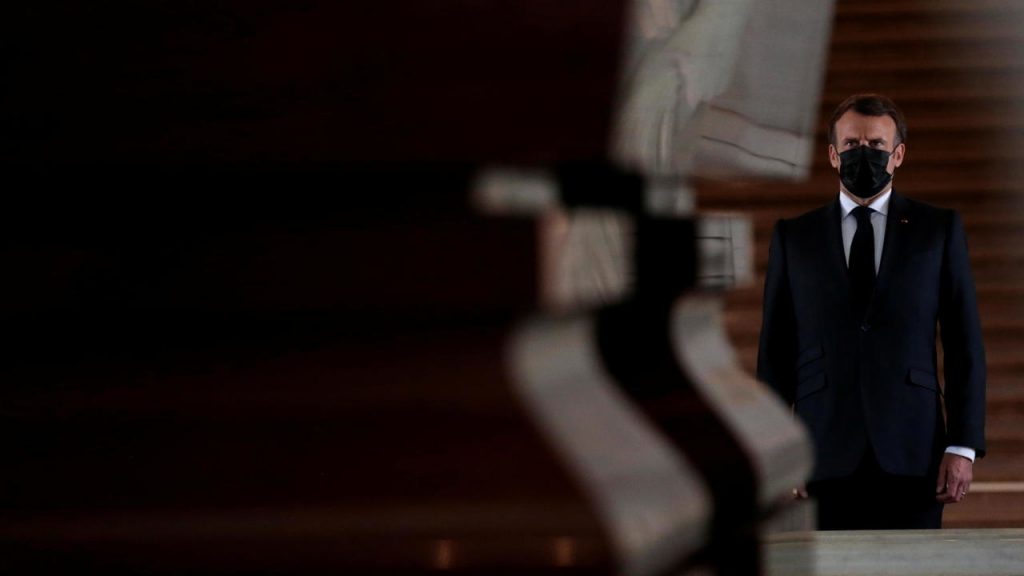History is a tricky entity. It is essentially a record of past events, as observed by an individual or a group of individuals with the abilities to write in whichever script, that a later generation may desire to know to understand the driving forces that made it what it is and how it can forge ahead to create a new history. The problem is not so much with the facts or the events as with the mind(s) that records history, later superimposing on them new perceptions that were, most likely, not valid in the past. France is now facing this problem as it has begun to observe the bicentenary of the death of Napoleon Bonaparte who died on fifth day of this month in 1821 in a surprisingly small bed in exile in a damp and reportedly rat-infested house of the British island of St Helena.
France is now divided over according honour to Napoleon known as “the child of the revolution (French Revolution of 1789)” who illustrated, with his own life, the principle of “la carriere est ouverte au talent” (career is open to talent). During his school days he used to be mocked at for his lower social standing but later he became the general of the French army and then emperor through a coup.
And this transformation is what splits the French nation into two. There are people who regard Napoleon as a destroyer of the new order ushered in by the French Revolution and also those who set him on a high pedestal, an iconic figure representing some of the best things that France stands for.
President Emmanuel Macron has sought to make a fine balance between the two extremes with aplomb. With just a year to go for the next Presidential election he has taken a position neither “to deny” (Napoleon’s positive contributions) nor “to repent” (for his abominable acts). He needs such a stance as the far right party of Marine Le Pen is eulogising Napoleon. She is getting such traction now that many experts believe she has the potential to defeat Macron in the next Presidential election.
Even two hundred years after Napoleon’s demise, the cause of his death is still shrouded in mystery just as his career and life continue to cause a schism in his own country. To some, he was a brilliant military and political strategist, to others he was nothing but a warmongering despot. For the Right wingers he is a national hero whose leadership and legacy put France on the map. The Left, on the other hand, brands him as an autocrat who supported the restoration of slavery in the French colonies in 1802 after the hideous system had been abolished in 1784.
Macron said Napoleon Bonaparte’s reinstatement of slavery was a “betrayal of the spirit of the Enlightenment.” But in his speech under the dome of the Institute of France, he said that “Napoleon is part of us” and France “must look our history straight in the eyes.” Even his Equality Minister Elisabeth Moreno, admitted Napoleon was “a great figure in French history” but he was also “one of the great misogynists”.
With such distinctions, Macron refused to yield ground to those who condemn Napoleon outright. This is both for his political conviction and also electoral strategy as he is expected to seek reelection next year.
He sent his message loud and clear when he laid a wreath at the foot of Napoleon’s tomb at Les Invalides, a gold-domed monument and site of a military hospital. His speech at the Institute of France made it clear that his intent was to “commemorate” and not “celebrate” the larger-than-life figure mired in controversy. For, he recalled how Napoleon had given France its civil code and penal code, established the system of prefects, representatives of the state in each French territory, and lycees, or high schools, among other things.
“From the empire, we have renounced the worst and from the emperor we have embellished the best,” Macron said. Justifying his participation in the bicentenary the President iterated commemorating the history is but reasserting the facts “serenely,” without “judging the past with laws of the present.”
That is perhaps the best Marcon could do without attracting controversy or alienating the electorate as some historians dig out records to show that Napoleon considered himself as “an instrument of political financiers.” This view gets reinforced by his reintroduction of slavery in the French colonies to exploit the workers there.
Macron’s appeal for dispassionate reappraisal of history without using the yardsticks of the present should resonate in countries such as India where the Right wing has been glibly attributing to ancient Indian civilisation, without evidence, the credit of making nuclear missile and plastic surgery as “revealed” to them through various inferences and images.
India is notorious for its scant regard for making meticulous record of its history. Thus enabling mischief-makers to falsify history to suit their vested interests. The prime reason, for not making detailed descriptive records, is the absence of any script that was accessible to a large part of society. Education and therefore script or writing remained bound by the stringent laws of the caste system. The upper castes preferred to pass on knowledge, or information, to the next generation mostly verbally. This secretive method failed if an offspring was a retard or a weak learner. That knowledge line perished at that stage. Ashoka, for instance, had used Pali as a script and recorded many events of that era in his stone edicts but later generations decided to kill that language to enable growth of Sanskrit. This greatly damaged India’s history keeping abilities. What we make out today as history is mostly myth, often exaggerated and usually unverifiable.
